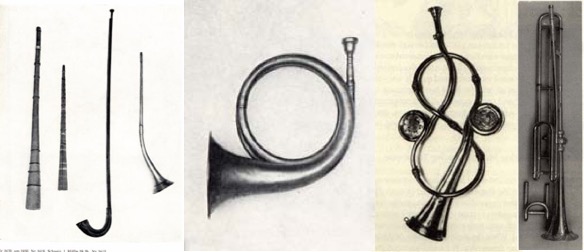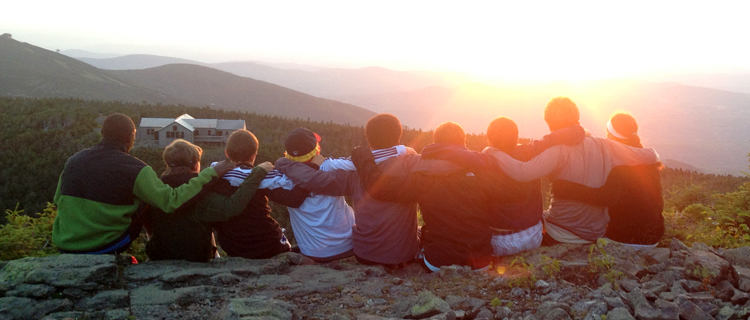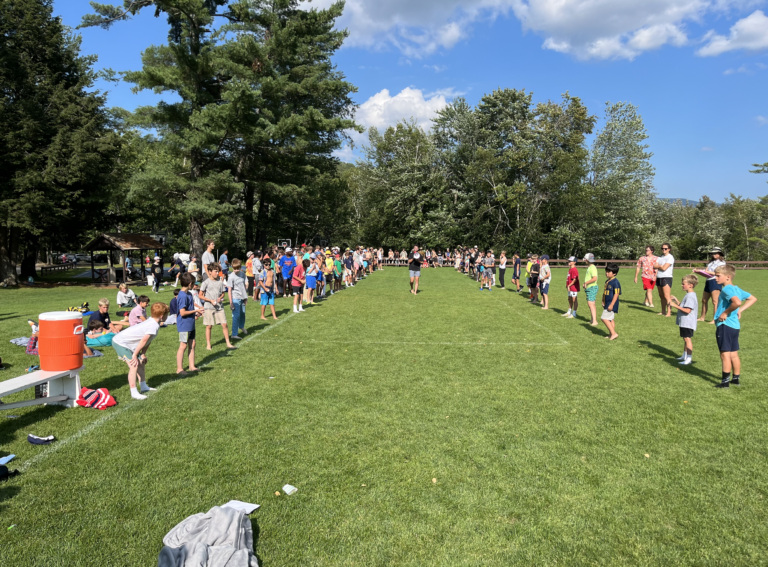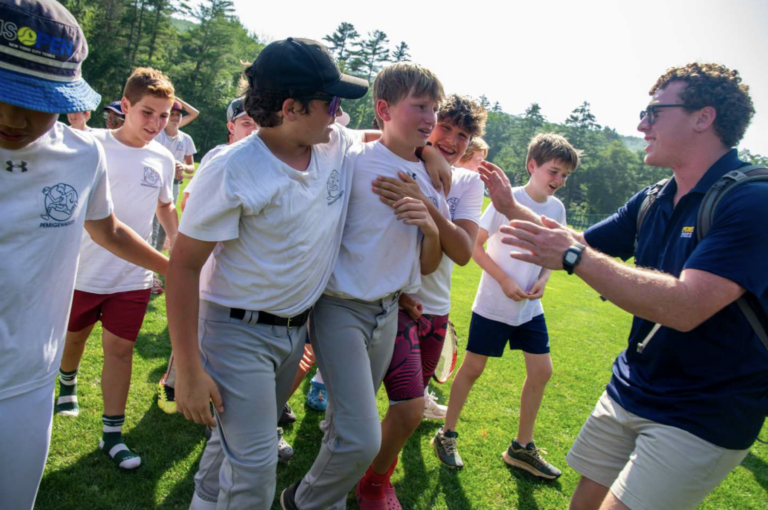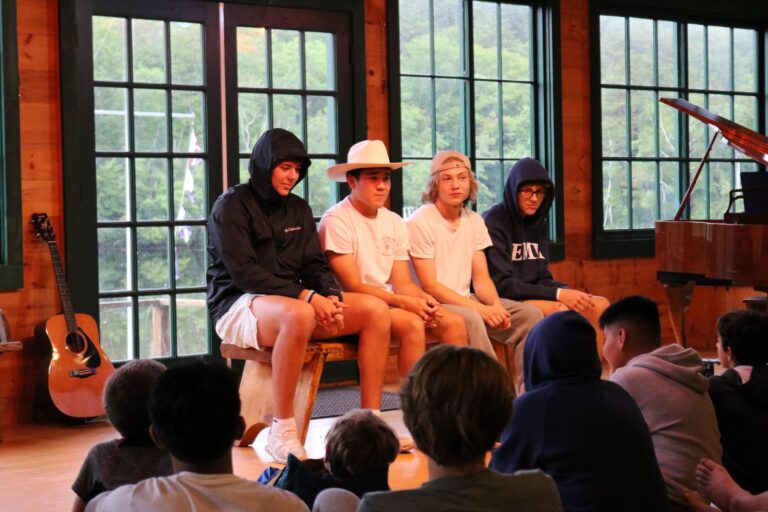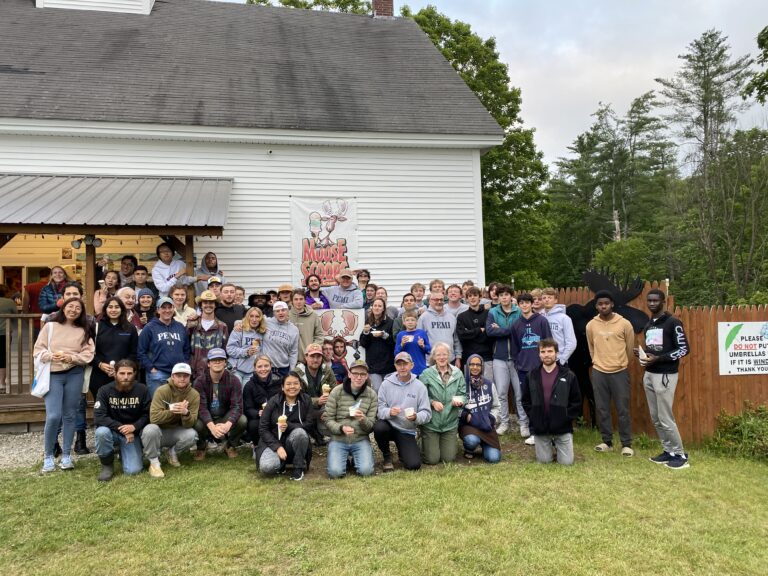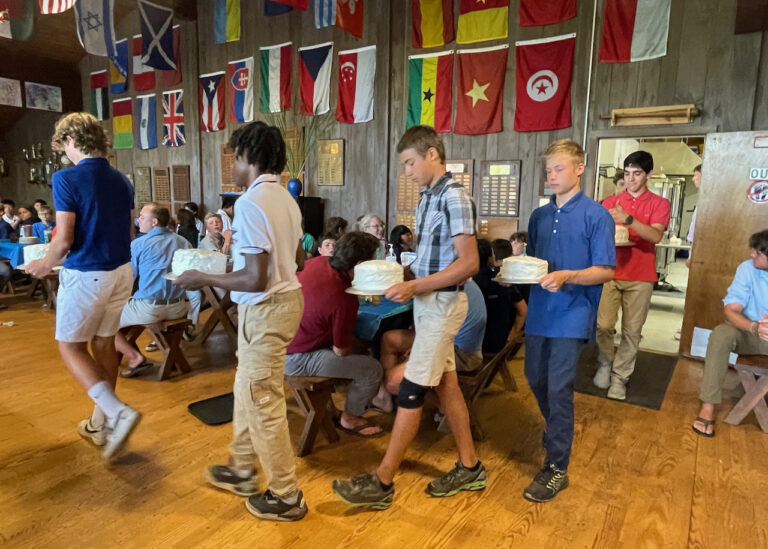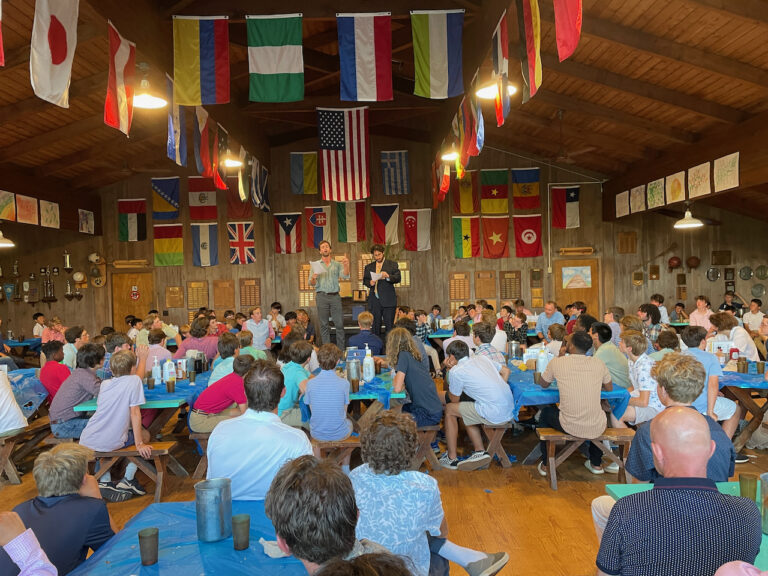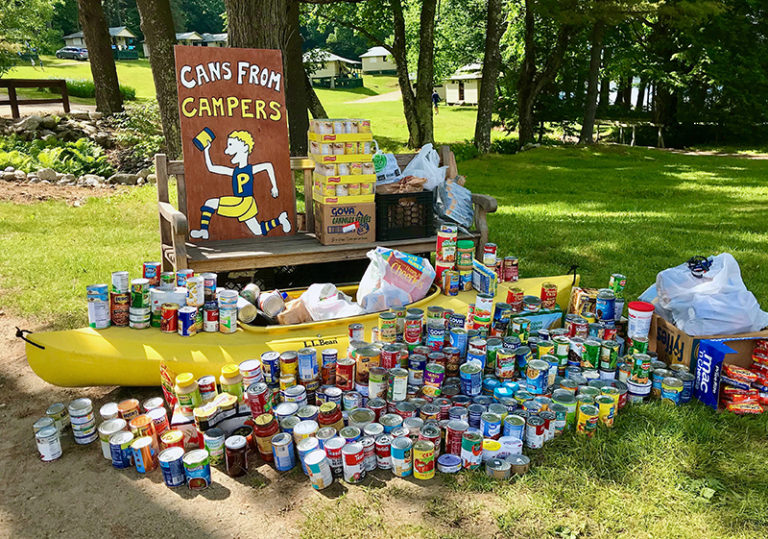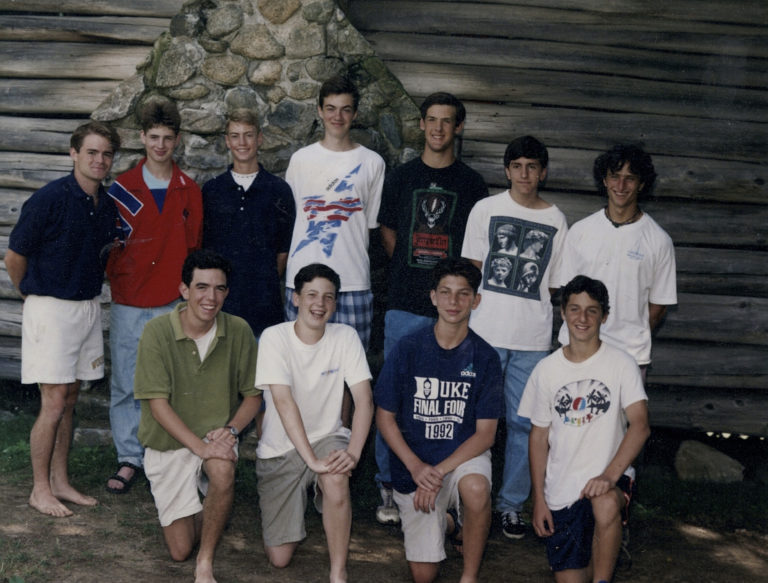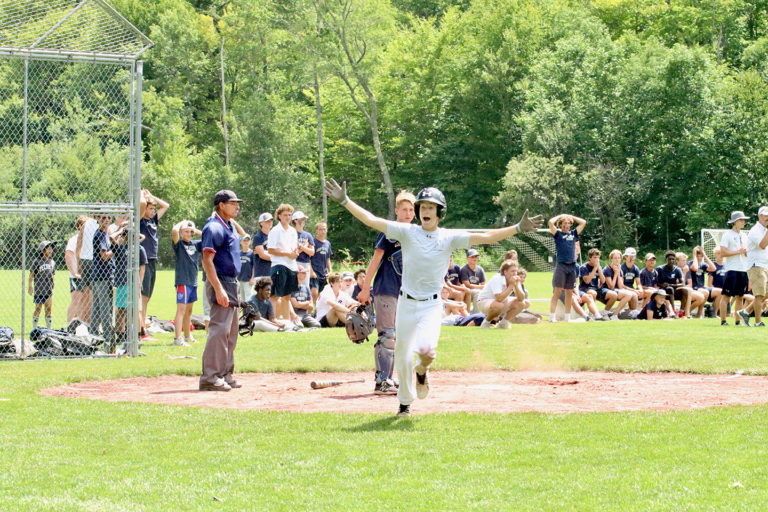- Camp Pemigewassett
- Daily Life at Pemi
- Pemi Alumni
- Pemi History
- Staff Stories
Long Live the Buglers
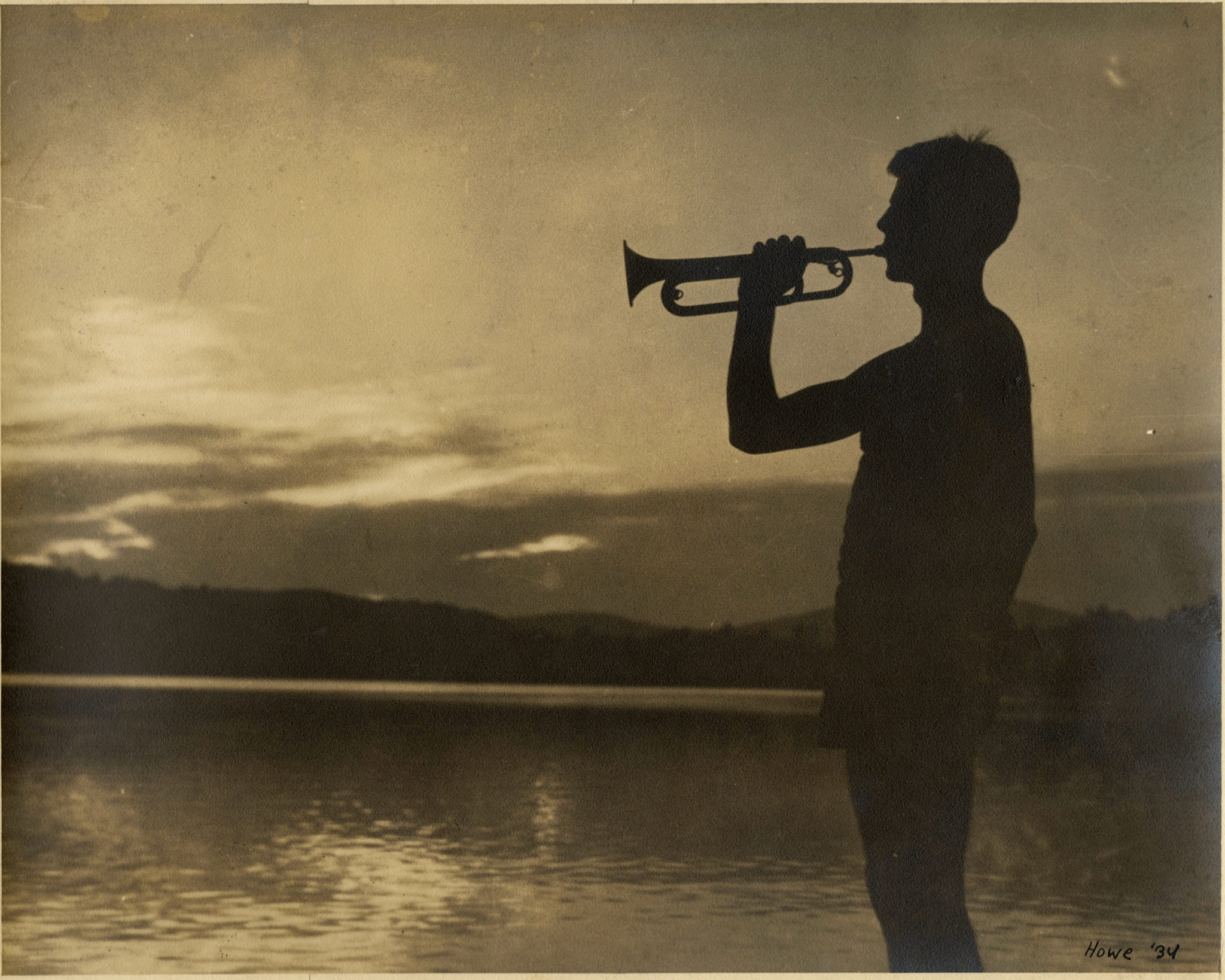
Of all the sounds of Pemi—loons on the lake, the lap of waves on the shore, songs in the Mess Hall, the pop of the campfire—it is the call of the bugle that weaves through all of our waking hours.
Click here to listen to Pemi bugle calls, or view a list of all daily calls.
As the sun rises, the jaunty Reveille wakes us from our dreams to rise and shine. First Call summons us to the Mess Hall porch, and Second Call invites us to enter and find our seats for a meal. During Flag Raising after breakfast and Flag Lowering after dinner, the entire camp pauses for a quiet, introspective moment, respectful of the day and all of our fellows. Calls ring out for Inspection, Activities, Rest Hour, and Free Swim. Assembly bids us to gather for special events like Bean Soup, Campfire, Vaudeville, and Sunday Meeting. At the end of the day, Tattoo tells us to brush our teeth and get ready for bed and the peaceful notes of Taps invite us to lay our heads to rest.
Many Pemi buglers have performed this critical duty, every day, from 7:30 in the morning until 9:00 at night, helping us know when and where to be at just the right time.
Today, many camps use recordings and loudspeakers instead of buglers. But at Pemi? We still bugle.

How to Be a Pemi Bugler
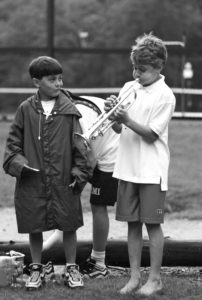 “Future buglers should delight in this tradition and unique experience. Being responsible for the moments when the camp stands still to listen and reflect, as well as for enabling the timely functioning of a community, is a huge honor.
“Future buglers should delight in this tradition and unique experience. Being responsible for the moments when the camp stands still to listen and reflect, as well as for enabling the timely functioning of a community, is a huge honor.
“It is particularly unique and empowering when this honor falls on a camper.”
~Zach See
“I was occasionally nonplussed by the well-meaning advice I received from seemingly every quarter…Bugling is highly visible; do not expect to be able to hide humanness. The slightest mistake, no matter how minute or infrequent, will be noticed, chortled over, and, in all likelihood, ridiculed in Bean Soup. Be willing to laugh at yourself and move forward. A perfect life metaphor.”
~Robert Naylor
“The most challenging aspect is taking on the responsibility of keeping time for the entire camp. You have to set an alarm, be constantly aware of the time, and not lose your bugle! You also need to find a good sub who can actually play some of the tunes, for when you have time off.”
~Porter Hill
“My advice for future buglers would be: 1) Get a good waterproof watch, and 2) Learn to double tongue—ta ka ta ka ta ka!”
~Chris Carter
So . . .
- Go for it!
- Get a waterproof watch.
- Keep good time.
- Be willing to try.
- Be willing to laugh at yourself.
- Know that everyone is rooting for you.
- Channel Herodoros (see below).
- Don’t lose the bugle.
- Treat your bugle with respect.
- Remember to find subs (a bagpiper, trombonist, or saxophonist will do).
- Get the U.S. Navy Manual for Buglers, which offers excellent guidance for learning to bugle (also in the Pemi library).
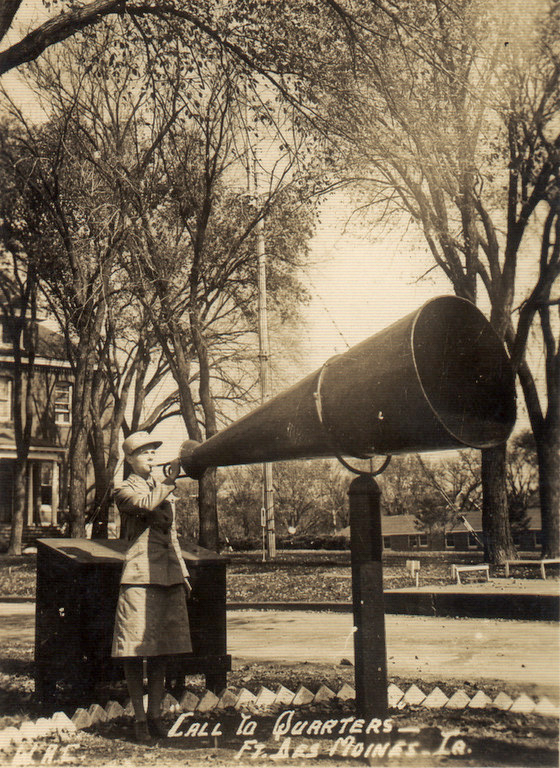
Calling All Buglers
If your son has an interest in learning to bugle or being the Camp Bugler, let us know! Staff—that goes for you too! Contact Kenny Moore or Pat Clare.
A special thank you to the following Pemi alumni, who responded to our call and contributed their thoughts and memories of bugling at Pemi for this post!
Robert Naylor, Pemi Bugler for Junior Camp ’88–89, Upper Camp ‘90–91, ‘94–95, ‘97
Zach See, Pemi Bugler for Junior & Upper Camps, late 90’s into early 00’s
Chris Carter, Pemi Bugler for ’83–88, with the exception of ’87
Porter Hill, Pemi Bugler for Junior Camp ’98, All-Camp ’00-04
Do you have bugling memories to share? We would love to hear them. Click here to share your favorite memories (or thoughts on the future of bugling) in the Comments.
“I used to find it amusing to see the difference in style between Tom Reed Sr. and Tom Reed Jr. when it came to waking up the bugler. Tom Sr. would wake me up somewhere between 7:20 and 7:25, look at his watch and say, “Morning, Chris. __ minutes until reveille,” while holding up that number of fingers. I used to worry that I’d fall back asleep, given that I often had ten minutes until I had to play. Not to mention that I was never happy missing out on the extra ten minutes of sleep. Tom Jr. would come in, wake me up, and say, “Hey, Chris—it’s 7:28.” Perfect timing! Enough for me to grab my robe and bugle and walk out on the hill to play reveille!”
~Chris Carter
Here’s to all the Pemi buglers over the decades! To all the elegant players who sounded every note near perfectly, and to all the brave beginners who dared to take up the call.
“I loved bugling. I loved the routine of it, the way that it marked the passing of the day. I never had a particularly ‘favorite’ call; I just loved the sound of the notes…I even loved the hint of martial spirit that the calls intimated. “Bugling just seemed to be ‘right’ for Pemi.”
~Robert Naylor
“Bugling tested one’s mettle, and demonstrated Camp’s spirit. “Many of my flag lowerings came from the shaky hands of an anxious young player who knew the double tonguing at the end of the call would inevitably trip him up. But despite whatever dying goose sound may have blown through, a hearty round of applause and encouragement was sure to follow from the community. No matter how badly I may have butchered the call, my efforts were appreciated.”
~Zach See
Here’s to all the bugles they played—whether ancient, dinged, and patina’d, or brassy and shining!
“I still have my bugle. And when my boys are being particularly lazy, I play reveille in the morning.”
~Chris Carter
Here’s to all the bugle calls that are on time…and all the ones that aren’t.
“Bugling is a stealthily demanding job, as the bugler is the only individual in camp who must know what time it is. That fact might seem trivial, but it might be surprisingly burdensome to some, at least on occasion.”
~Robert Naylor
“Being the camp clock didn’t allow for untimeliness, and was certainly a challenge—especially when the director was yelling for first call and you were in the squish.”
~Zach See
Here’s to all the campers and staff members who feel a tug at their hearts as the beautiful notes of a call echoed across the lake…
“My favorite bugle call is the Church Call. It’s calm…formal but relaxing…and the way that the call reverberates around the empty camp and echoes off the lake while everyone is seated inside the main lodge just reminds me of what makes Pemi special. It’s the only one that I tried to play perfectly every time.”
~Porter Hill
…or feel laughter in their souls and a tickle in their toes.
“The positives of being a bugler are that you get to perform for the whole camp multiple times a day. I still recall kids dancing around me as I played tattoo. And the groans when I played reveille.”
~Chris Carter
“I can’t imagine Colin Brooks doing his Tattoo Dance any other way than directly in front of the bugler.“
~Robert Naylor
Here’s to bugling at Pemi for years to come. Long live the buglers!
“If nothing else, the bugling tradition at Pemi distinguishes us from any number of other institutions. Presumably none of us could ever imagine Pemi’s marking time with a simple bell or, immeasurably worse, a recording.”
~Robert Naylor
“Being the bugler at Pemi is one of my most cherished memories, and I hope we never move away from the tradition of live bugle calls every summer.”
~Porter Hill
Did You Know?
Bugles are part of a long lineage of signal horns that, over thousands of years, have enabled humans to communicate across great distances and amongst large groups of people: for ceremonies and rites, hunts and competitions, the arrival of postal couriers or stagecoaches, between ships, for troop movements and military routine, and, since the turn of the 20th century, at scout troops for girls and boys, and summer camps—like Pemi!
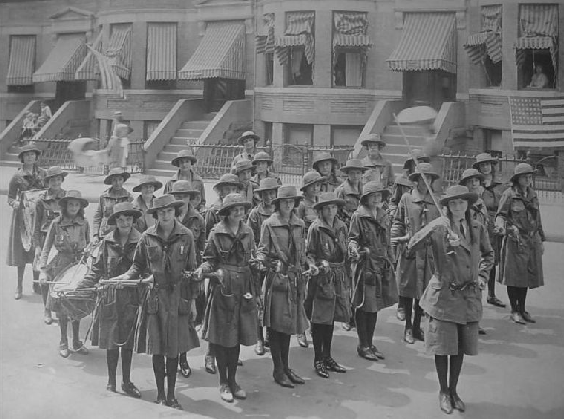
The word “bugle” derives from the Latin word “buculus,” a young bull or ox—because early signal horns were made from animal horns.
Specimens of ancient signal horns in all shapes and sizes have been documented in nearly every culture, from Ancient Egyptian, Roman, and Greek, to Celt and Asian.
Today, the Swedish and Dutch postal services still use a coiled bugle—which was sounded to signal the arrival of the post—as their emblem!
The Greeks added a “Heralds’ and Trumpeters’ Contest” to the Olympics in 396 BC (the 96th Olympic games), featuring the salpinx, a trumpet-like horn. Winners were judged on volume and endurance. Herodoros, a man of immense size, won the Heralds’ event ten times and once blew two trumpets at once in battle, to inspire soldiers to victory.

Signal horns as an integral part of military communication first appeared in the records of the Roman Army.
Bugle use in the U.S. military reached its peak in the Civil War and continued as a critical signaling tool until the invention of radios. Bugles were still used as signal horns on the ground in the Vietnam War.
Today, the military bugle is used primarily in ceremonial settings.
In 2003, in light of increasing requests for military funerals but a decline in the number of human buglers, the Pentagon declared that an electronic device known as a “ceremonial bugler,” which fits inside the bell of a real bugle, could be used world-wide at military funerals for which a human bugler is not available.




